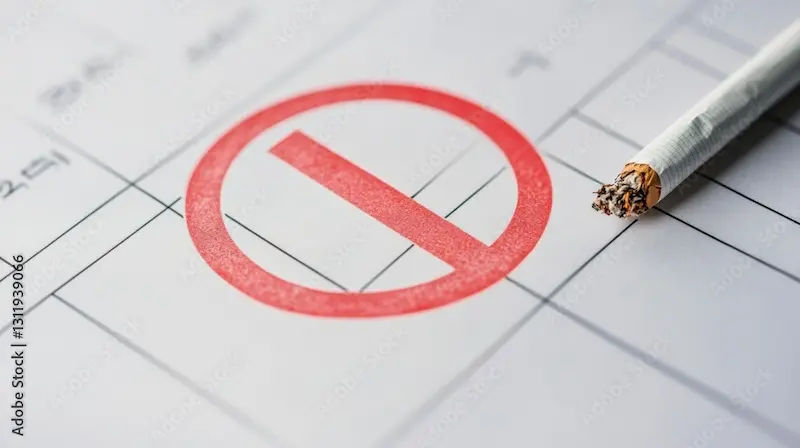Health Tests for Smokers to Consider
Discover essential health tests for smokers to monitor the impact of tobacco use. Learn why timely screening is crucial, which tests to consider for lung, heart, and cancer risks, and lifestyle changes to improve your health.


Introduction
Smoking is a habit that can have serious long-term effects on your health. Whether you smoke occasionally or regularly, it’s important to monitor your body for any potential damage caused by tobacco. Early detection of health issues can make a significant difference in treatment and recovery.
If you’re a smoker, certain health tests can help assess your risk of developing smoking-related diseases. Here’s a guide to the essential tests you should consider and why they matter.
Why Should Smokers Get Regular Health Tests?
Smoking affects nearly every organ in the body, increasing the risk of:
Lung diseases (COPD, lung cancer)
Heart disease (high blood pressure, heart attacks)
Cancer (mouth, throat, esophagus, bladder)
Weakened immune system
Diabetes complications
Regular health screenings can help detect problems early, allowing for timely treatment and better outcomes.
Key Health Tests for Smokers
Important medical tests every smoker should consider:
1. Lung Function Test (Spirometry)
What it checks: How well your lungs are working by measuring airflow and lung capacity.
Why it’s important: Smoking damages lung tissue, leading to conditions like chronic obstructive pulmonary disease (COPD) or emphysema. A spirometry test can detect early signs of lung disease before symptoms appear.
2. Chest X-ray or CT Scan
What it checks: Abnormalities in the lungs, such as tumors, infections, or scarring.
Why it’s important: Helps detect lung cancer or other respiratory issues early, when treatment is most effective.
3. Blood Pressure Check
What it checks: High blood pressure (hypertension).
Why it’s important: Smoking narrows blood vessels, increasing the risk of heart disease, stroke, and kidney problems. Regular monitoring helps manage blood pressure before complications arise.
4. Cholesterol & Lipid Profile Test
What it checks: Levels of LDL (bad cholesterol), HDL (good cholesterol), and triglycerides.
Why it’s important: Smoking raises bad cholesterol and lowers good cholesterol, increasing the risk of heart disease and stroke.
5. Blood Sugar (Diabetes Screening)
What it checks: Risk of Type 2 diabetes.
Why it’s important: Smoking increases insulin resistance, raising blood sugar levels and worsening diabetes complications.
6. Oral Cancer Screening
What it checks: Signs of mouth, throat, or tongue cancer.
Why it’s important: Smokers are at higher risk for oral cancers. Early detection improves treatment success.
7. Electrocardiogram (ECG/EKG)
What it checks: Heart rhythm and function.
Why it’s important: Smoking increases the risk of heart attacks and arrhythmias (irregular heartbeat).
8. Complete Blood Count (CBC)
What it checks: Overall health, including red and white blood cell levels.
Why it’s important: Smoking can cause anemia, infections, or inflammation, which a CBC can detect.
9. Carbon Monoxide Test
What it checks: Levels of carbon monoxide in your blood.
Why it’s important: Smoking increases carbon monoxide, which reduces oxygen in the blood, leading to fatigue and heart strain.
Get Your Health Assessed
Lifestyle Changes to Improve Your Health
While getting tested is crucial, making healthy lifestyle changes can significantly reduce smoking-related risks:
Quit Smoking – The best way to improve your health. Seek support from doctors, nicotine replacement therapy, or counseling.
Eat a Balanced Diet – Include fruits, vegetables, whole grains, and lean proteins to boost immunity.
Exercise Regularly – Helps improve lung and heart function.
Stay Hydrated – Helps flush toxins from the body.
Avoid Secondhand Smoke – Even passive smoking is harmful.
Limit Alcohol – Alcohol and smoking together increase cancer risks.
When Should You See a Doctor?
If you experience any of these symptoms, consult a doctor immediately:
Persistent cough or coughing up blood
Shortness of breath
Chest pain
Unexplained weight loss
Frequent infections
Early medical intervention can prevent complications.
Final Thoughts
Smoking poses serious health risks, but with the right tests and lifestyle changes, you can reduce damage and improve your quality of life. Don’t wait for symptoms to appear; get screened regularly and take control of your health.
Consult a Top General Physician for the best advice
Consult a Top General Physician for the best advice

Dr. Mohamed Azeem
General Physician/ Internal Medicine Specialist
2 Years • MBBS,MD(Internal Medicine) CCEBDM
Karaikudi
Apollo Hospitals Karaikudi, Karaikudi

Dr. Sandhya Chandel
General Physician/ Internal Medicine Specialist
16 Years • MBBS, MD (Int. Med.), IDCCM
Bilaspur
Apollo Hospitals Seepat Road, Bilaspur
(125+ Patients)

Dr Aakash Andgi
General Physician/ Internal Medicine Specialist
9 Years • MBBS MD
Bengaluru
Apollo Clinic, JP nagar, Bengaluru

Dr Syed Mateen Pasha
General Physician
2 Years • MBBS
Bengaluru
PRESTIGE SHANTHINIKETAN - SOCIETY CLINIC, Bengaluru

Dr. Harshendra Jaiswal
General Physician/ Internal Medicine Specialist
12 Years • MBBS , MD (General medicine)
Kolkata
108 DHANA DHANVANTARI Clinic, Kolkata
(25+ Patients)







